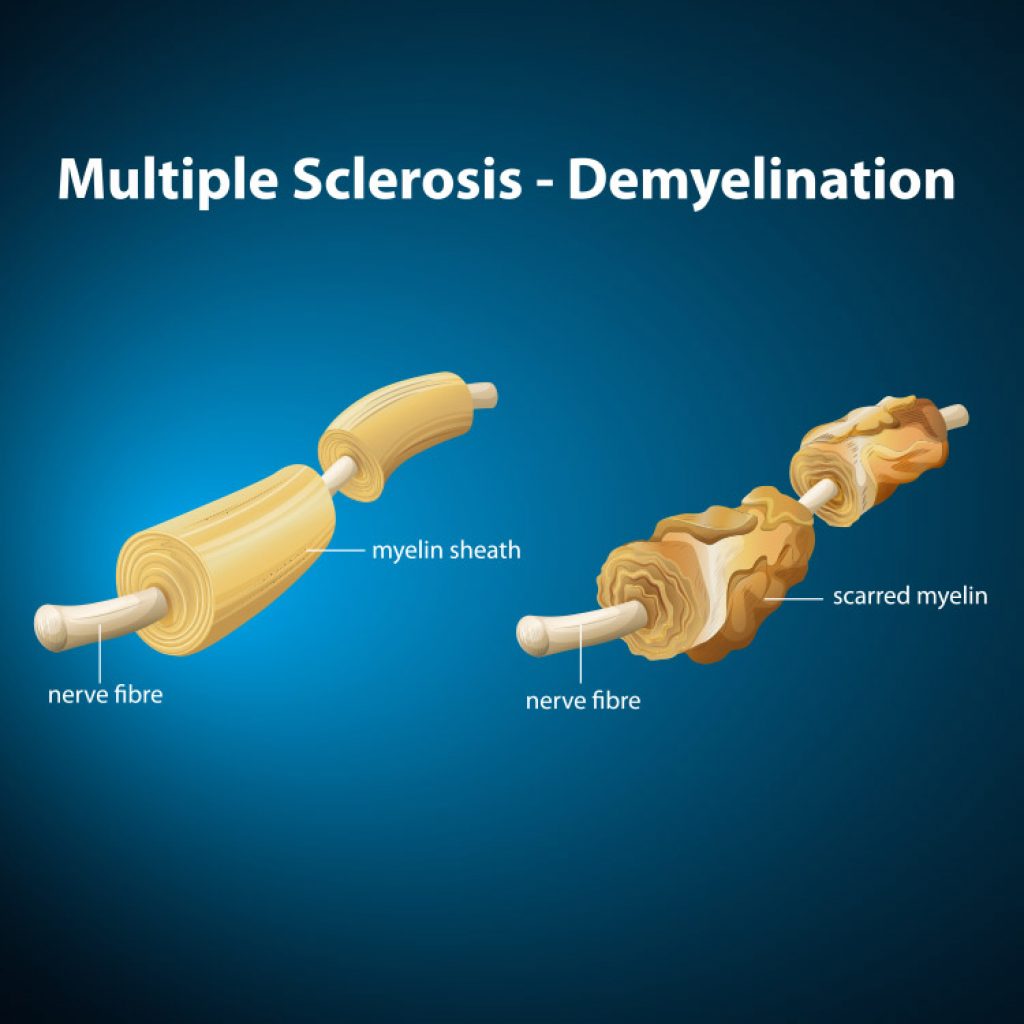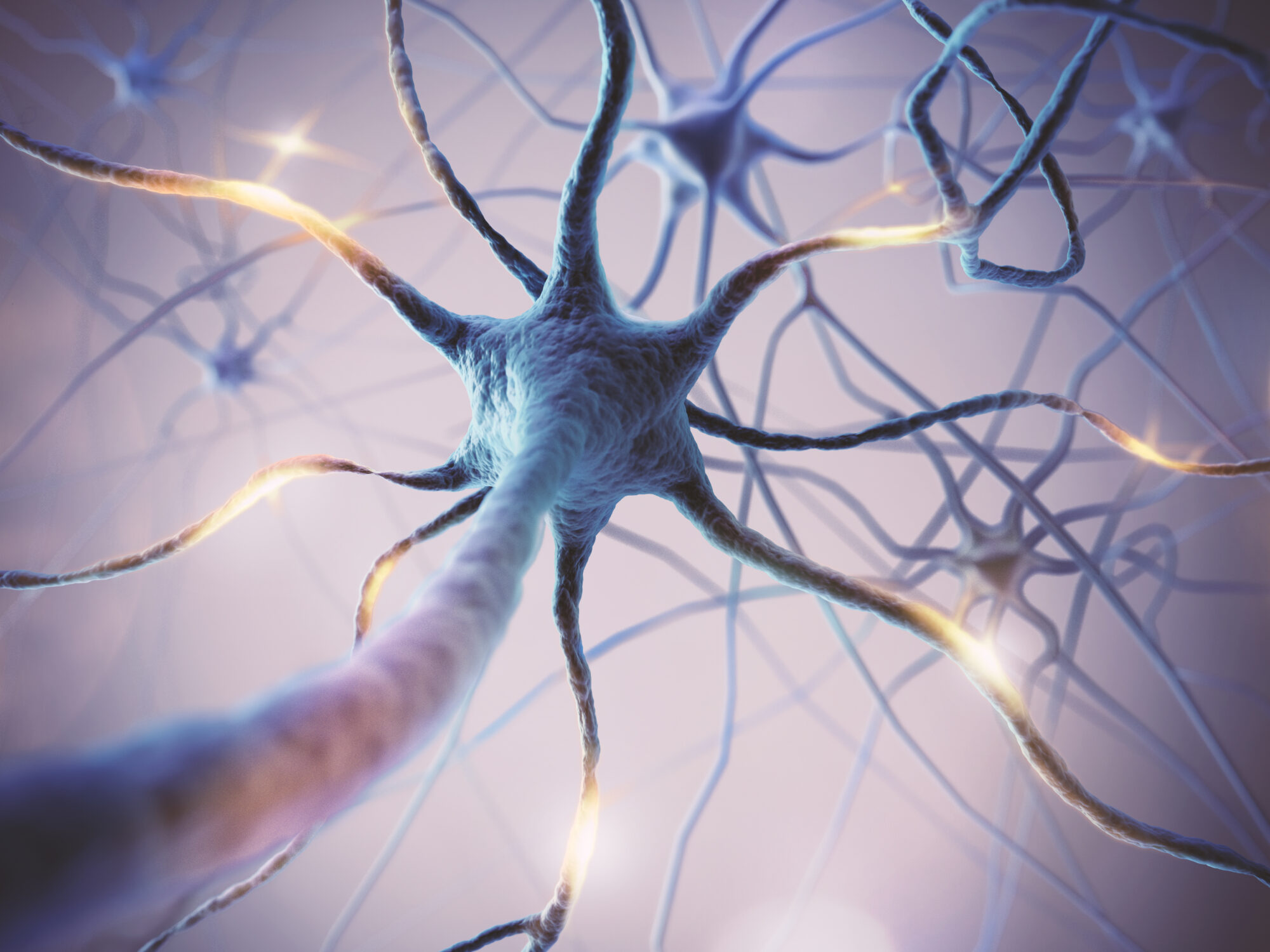In this article..
Last week Hunter Medical Research Institute (HMRI) announced that a new MS Clinical trial will begin in Newcastle, headed by Professor Jeanette Lechner-Scott. The PLATYPUS Trail clinical trial will replicate the OCTOPUS Clinical Trial that began in the UK in late 2023.
What is Multiple Sclerosis (MS)?
Multiple Sclerosis, also known as MS, is the most common chronic neurological disease that affects young people, often diagnosed between the ages of 20-40.
The disease currently has no cure and impacts nearly 33,300 people in Australia (3 million people globally). In Australia, 3 out of 4 people diagnosed with MS are women. Although there are no single known causes, it is thought by the scientific community that many genetic and environmental factors lead to the development of the disease, however, these have not been well defined.
The immune system of people with MS mistakenly attacks and damages the myelin that coats the nerves. Myelin is crucial to insulating and protecting nerves, allowing quick and efficient delivery of electrical messages from the brain to the rest of the body.
As a result of myelin deterioration (demyelination) during MS attacks and progression, sections of the nerves become exposed, scared and damaged, leaving the nerves unable to communicate messages. Therefore, the brain cannot communicate with other parts of the body causing a range of symptoms including motor function loss (movement of arms, legs and hands), loss of sensation and issues with vision, thinking and memory. However, the symptoms of MS differ from person to person, and the symptoms vary in severity.
Although the disease causes changes to how people live their lives, the mild cases of the disease can be managed with the proper support, care and tools.

What is Progressive Multiple Sclerosis (PMS)?
In most cases of MS, the degradation of myelin occurs in ‘attacks’ of the disease as the immune system attacks the myelin. These attacks are then followed by periods of recovery or remission. Progressive Multiple Sclerosis can be either Primary (PPMS) or Secondary (SPMS) Progressive MS.
- PPMS affects approximately 10-15% of individuals diagnosed with MS and is determined by the continuous worsening of symptoms and disability, with no periods of recovery or remission.
- SPMS is determined by a period of relapsing-remitting MS, that can develop years following the initial MS diagnosis.
The PLATYPUS Trial
The PLATYPUS trial is examining several different medications, and determining whether they can delay the progression of PMS. Additionally, the trial will be an adaptive clinical trial (ACT), which is a modern design, where interim examinations and analysis of the study data occur throughout. Compared to traditional studies, where data is analysed at the end, the study allows for changes – such as dosage changes and medication substitutes, to be implemented in real-time, allowing for the effective and efficient running of the trial.
The Importance of Medical Research Institutes like HMRI
Currently, there is an unmet need for PMS treatments, highlighting the exciting potential of the PLATYPUS Trial. MS can be experienced differently from individual to individual, and impacts different parts of the body, depending on where the demyelination occurs (brain, optic nerve, spinal cord). Additionally, symptoms aren’t necessarily visible, therefore you might not know when a person is experiencing symptoms.
The PLATYPUS trial is just one of the many trials occurring at the MS Clinic HMRI. Another important trial occurring is the Assisted Reproductive Technology in Multiple Sclerosis and Neuromyelitis Optica Spectrum Disorders (ARTiMS). The ARiMS study aims to improve the care for women with MS who are also receiving Assisted Reproductive Technology.
MS currently has no cure, however, researchers around the world, including at HMRI are doing exciting work and making progress in finding novel treatments and therapies for people living with the disease.
If you’d like to learn more about the drug development pipeline and clinical trials, please check out our article Understanding The Drug Development Pipeline.
Multiple Sclerosis and Motor Neuron Disease (MND)
Neurological disorders are often confused with one another, due to the similarities in their symptoms. A major confusion has been visualised between MS and MND, which manifest in similar ways and exhibit similar symptoms. However, the main difference between the two diseases is that MS is an autoimmune disease, whereas MND is a neurodegenerative condition. Further, MS impacts the myelin sheaths of the central nervous system, causing signal disruptions throughout the body. Contrastingly, MND affects the actual nerve cells, causing movement issues.
Keep an eye out for an article about MND coming out soon…
Check out our Newsletter and Podcast
